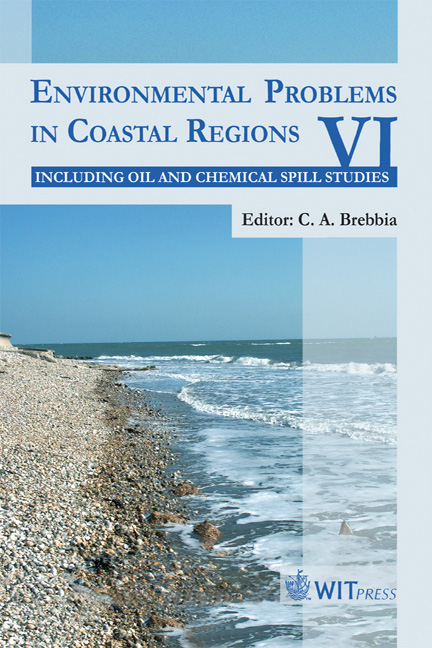The Use Of Thermophilic Bacteria In Accelerated Hydrocarbon Bioremediation
Price
Free (open access)
Transaction
Volume
88
Pages
11
Published
2006
Size
471 kb
Paper DOI
10.2495/CENV060071
Copyright
WIT Press
Author(s)
A. Perfumo, I. M. Banat & R. Marchant
Abstract
Successful bioremediation of hydrocarbon contamination in terrestrial as well as aquatic ecosystems is generally limited by the low bioavailability of hydrophobic pollutants. Considerably higher mass transfer rates and hydrocarbon solubilities can be obtained at higher temperatures, but so far approaches to bioremediation at increased temperature have hardly been investigated. The biotechnological significance and the benefits of the use of thermophilic bacteria in enhancing hydrocarbon removal under different environmental conditions were investigated. Expression of the alkane mono-oxygenase alkB gene responsible for the initial step in the degradation of alkanes in soil geobacilli was found to be induced by the presence of such a substrate at high temperature, and this explains the increased degradation rates achieved in hexadecane-contaminated microcosms incubated at 60°C compared to mesophilic conditions. Additional benefits of increasing hydrocarbon degradation also occur when thermophilic bacteria capable of producing biosurfactants which act as solubilising agents in such systems are introduced. We conclude that thermally accelerated bioremediation may be an effective technology for hydrocarbon contaminated soil bioremediation. Keywords: thermophiles, geobacilli, bioremediation, biosurfactants. 1 Introduction Removal of contamination from soils, sediments, groundwater, surface water and air with hazardous and toxic compounds is a priority task for the restoration of the natural environment due to the serious threat contaminants pose to ecosystems and human health. Among the many techniques employed to
Keywords
thermophiles, geobacilli, bioremediation, biosurfactants.





